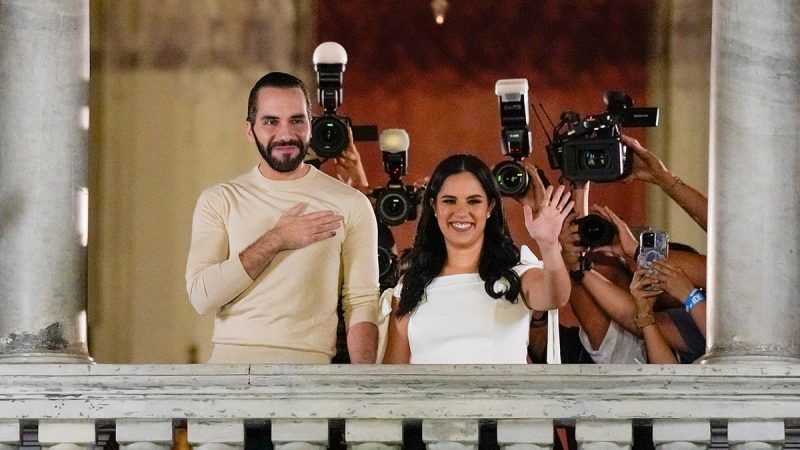El Salvador’s President Nayib Bukele, self-described as the ‘world’s coolest dictator,’ secured what global observers deemed a landslide re-election victory on Sunday.
U.S. Secretary of State Antony Blinken issued a statement on Monday congratulating Bukele on the win.
‘The United States commends the work of electoral observers and looks forward to working with President-elect Bukele and Vice President-elect Felix Ulloa following their inauguration in June,’ Blinken said.
‘The United States values our strong relationship with the people of El Salvador, forged over 160 years and built on shared values, regional ties, and family connections. Events in El Salvador have a direct impact on U.S. interests at home and abroad. Only by working together can we achieve our full potential and overcome the greatest obstacles in our hemisphere and globally,’ Blinken said. ‘Looking ahead, the United States will continue to prioritize good governance, inclusive economic prosperity, fair trial guarantees, and human rights in El Salvador under our Root Causes Strategy.’
Reuters reported that provisional election results available on Monday morning showed Bukele winning 83% support, far ahead of the 7% for his nearest competitor, the leftist Farabundo Martí National Liberation Front, with just over 70% of the ballots counted.
Bukele had already announced he was the winner before official results were announced, stating he secured more than 85% of the vote.
Ballots from 31% of polling places had been counted late Sunday, according to the Supreme Electoral Tribunal’s preliminary results.
‘All together the opposition was pulverized,’ Bukele, standing with his wife on the balcony of the National Palace, said Sunday, according to Reuters. ‘El Salvador went from being the most unsafe (country) to the safest. Now in these next five years, wait to see what we are going to do.’
His New Ideas party is also projected to pick up almost all the 60 seats in the legislative body, Reuters reported.
Bukele made clear that he expects the newly elected Legislative Assembly to continue extending the special powers he has enjoyed since March 2022 to combat the country’s feared gangs.
‘We are not substituting democracy, because El Salvador never had democracy,’ he said. ‘This is the first time in history that El Salvador has democracy. And I’m not saying it, the people say it.’
Under the state of emergency approved in March 2022, the government has arrested more than 76,000 people – over 1% of the Central American nation’s population. It has spurred accusations of widespread human rights abuses and a lack of due process, but violence has plummeted in a country known just a few years ago as one of the most dangerous in the world. And Salvadorans championed being able to take back their neighborhoods long ruled by gangs.
El Salvador’s constitution prohibits re-election. After his party was victorious in 2021 legislative elections, the newly-elected congress purged the country’s constitutional court and replaced judges with those who ruled that Bukele could run for a second term. Critics say he has chipped away at the country’s system of checks and balances.
Sara Leon, 48, was among throngs of people who flocked to El Salvador’s previously gang-controlled downtown to celebrate. When she was 23, Leon risked her life to migrate from El Salvador to the United States with her 6-year-old daughter. She returned to her homeland in October because of the state of emergency and hopes her daughter will be able to return.
‘If the gangs saw a cute girl, they abducted her, abused her and killed her,’ she told The Associated Press. ‘I didn’t want that to happen to my daughter.’
‘He is a genius,’ she said of Bukele, tearing up when asked what his administration has meant. ‘If he’s a dictator, may we have a dictator for 100 more years.’
The Associated Press contributed to this report.

